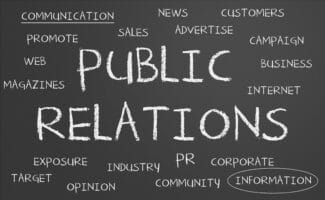 Sondhelm Partners regularly hosts and manages media for our boutique investment manager clients at events. We invite reporters to engage with our clients about investment management issues. It’s a way of increasing visibility and relevance for many managers.
Sondhelm Partners regularly hosts and manages media for our boutique investment manager clients at events. We invite reporters to engage with our clients about investment management issues. It’s a way of increasing visibility and relevance for many managers.
Recently, one of our asset manager clients and I were deciding if reporters should attend one of their conferences. This client loves to engage with the media and understands the benefits of talking to the press. However, a few companies speaking at the conference were uncomfortable speaking to the media.
This got me thinking about why some firms shy away from the media. Here are six potential adverse outcomes when an asset management portfolio manager or firm executive speaks with the media.
Most reputable media outlets and their journalists won’t lie or fabricate facts. However, some journalists will do what it takes to tell a compelling story at your expense.
- The Mic Is Always On
When you talk with a journalist, it isn’t just a casual conversation. No matter how nice the reporter seems, they are interviewing you. Anything you say could be published.
You should always stay on message, no matter the situation. Have your key messages prepared well in advance of your conversation. Our Message Map tool can be helpful in these situations. It helps the spokesperson stay focused on the message.
- Your Best Friend or Your Enemy
The news media’s job is to tell a compelling story that will interest their audience. Most reputable media outlets and their journalists won’t lie or fabricate facts. However, some journalists will do what it takes to tell a compelling story at your expense.
Research the media outlet and topic before committing to an interview. There is nothing wrong with turning down an interview if it isn’t a fit for you and your firm.
- The Media Loves Controversy
Most media outlets have a liberal or conservative bias. However, it isn’t always so straightforward with the financial news media. The media does, however, like to hear opposing views on a particular topic which results in a more compelling story for the them to cover.
In this situation, it is essential to have conviction in your story. Don’t let opposing views deter you from delivering your side’s thoughts and overall message.
It is essential to research the reporters, producers, and media outlets before any media interview and to have your talking points and data points prepared well in advance.
- Speed Is More Important Than Perfect
In the age of content being so readily available and with great speed, reporters may not accurately report specific facts. Their goal is to publish a story quicker than their competitors. Unless there is a factual inaccuracy, many publications won’t amend or retract their stories.
Research the reporters, producers, and media outlets before any media interview, and have your talking points and data points prepared well in advance.
- The Media Knows More Than You Think
A journalist will typically do extensive research before any interview. Don’t be surprised if the reporter asks you difficult, industry-specific questions. Also, don’t be surprised if they ask questions irrelevant to your firm or message–and know how to respond best.
Even if the reporter seems green to the industry, it is dangerous to underestimate a reporter’s knowledge of a subject. Journalists do their due diligence on a topic by actively following social media trends and researching other media outlets for ideas. Be sure to know your story and key messages. Also, be sure to Google yourself and your organization in advance to know any vulnerabilities they could bring up.
- You Have No Control Over What Gets Published
You may spend many hours drafting your talking points and preparing your thoughts before an interview with a journalist. If you are lucky, the discussion may result in a profile piece about you and your firm. However, it is likely they may only use one or two sentences from the entire interview, or they may not include you in the story. Sometimes, your discussion with a reporter only educates them on a topic they cover. The editor or a media executive may make the ultimate call in what gets on the air or published. You typically won’t ever know what will be published until the story runs.
Don’t let this discourage you. Building relationships and helping reporters is critical. It is like any sales process. Nurture these relationships, and it will have a significant impact on a potential profile piece down the road.
For boutique asset managers, working with the media is inevitable. While the platform can amplify your firm’s visibility, it has challenges. Navigating this terrain requires vigilance and a keen understanding of potential setbacks. It’s not just about avoiding risks—it’s about leveraging media interactions to bolster your firm’s reputation. The media can make or break you. Controlling your message is imperative.
Milin Iyer is the Director of Public Relations of Sondhelm Partners. The firm helps asset managers, mutual funds, ETFs, wealth managers, and fintech companies grow through marketing, public relations, and sales programs. Click to read our latest Insight articles and to schedule a complimentary consultation.
Connect

